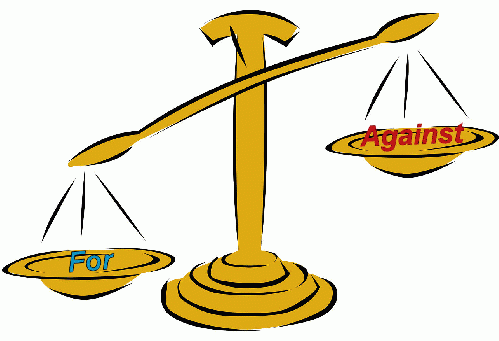Recently, Mark Fronhmayer gave a TED talk on Approval Voting in which he used the term "balanced voting". He used the term in a different way than I have in this series and some of the discussion that followed the TED talk led me to add a comment to my most recent article to note that there has been some, disagreement or at least some confusion, about the meaning of the term "balanced voting".
In an effort to clarify what I had meant by the term, I posted a short paper to describe with greater precision what I meant. Many people will surely be put off by the mathematical nature that paper, so one of my aims in writing this article is to try to explain issue in plain language that can more widely be understood.
But it turns out that the problem itself is with plain language. The fact is that, although we have a lot of words available to us, at times there just does not seem to be just the right word with the exact meaning we want to convey; so we resort to choosing a word that is as close as we can get. That imprecision in vocabulary can lead to confusion and this instance, the confusing word was "vote". We all think we know what that means but let me delve into a specific voting system to illustrate how that word can become confusing.
Recall that with approval voting, a voter is allowed to express approval of any number of the candidates up for election. The voter can choose to bullet vote for just a single candidate just as easily for all of them (though that would not have much impact on the election). This is just an example, so lets say a voter chooses three candidates to grant approval to. Now is that casting approval to three candidates a vote? Or is that three votes? Sad to say, I have probably at times throughout these articles shifted between one of these meanings and the other and I thereby have opened the door to quite legitimate confusion.
For more clarity we need at least one more word that doesn't seem to be in everyday plain English so let me invent one now. In the above example, let me say that in expressing approval to three candidates only, the voter is casting a single vote but that single vote consists of three votelets. This new language may no longer be plain English but it does allow the issues of voting to be discussed more clearly, so let us extend the use of vote and votelet to any voting system where a voter can express an opinion about multiple candidates.
Now I have observed in my most recent article that
In a balanced voting system, the votes of two voters who feel exactly the opposite about the candidates will simply cancel one another.
Now, given my now more precise vocabulary, I should have said votelets rather than votes but Fronhmayer used the term "balanced voting" with the other meaning for "vote". In a nutshell, this is the confusion under discussion. Fronhmayer then argues that approval voting is balanced because, with approval voting, any vote, v, can be canceled by the vote that expresses approval for exactly the candidates that are approved by v. In fact it might be noticed that any votelet can be canceled by a vote but not every vote can be canceled by a votelet -- and that hardly seems balanced in the intuitive sense.
In this series of articles, I have often observed that a virtue of balanced voting is that it will encourage the participation of multiple parties in our elections. This reveals a personal bias of mine and there are clearly others who think it is important to preserve our two-party system. But whether or not it is a virtue, I believe I have argued convincingly that, with the votelet interpretation of "balanced voting", these systems would, in time, facilitate the demise of that two-party dominance of our politics and lessen the polarization that is all too familiar in our politics. But this does leave open the question of whether, and by how much, that would still be the case with the vote (as opposed to votelet) interpretation of balanced voting. My feeling is that approval voting would be a step towards a multiple-party politics but a very small step compared to adopting balanced approval voting.
Approval voting is an admirable voting system because it does allow voters freedom to express support for multiple candidates rather than just one as our current system does. There are a lot of people who advocate for it and there is a web site for this purpose. With approval voting, voters are able to vote for minority candidates without concern for how that might disadvantage other candidates -- something that is not possible using our traditional voting system. But approval voting clearly does not treat approval of a candidate remotely like it treats disapproval and in that fundamental sense it is not balanced.
Balanced approval voting allows votelets to approve or disapprove of candidates with equal ease while approval voting does not. As well, with balanced approval voting, a voter can distinguish, candidate by candidate, between disapproving and not expressing an opinion -- something simply not possible with approval voting. In many ways, at least in my opinion, balanced approval voting earns its right to the adjective "balanced".






